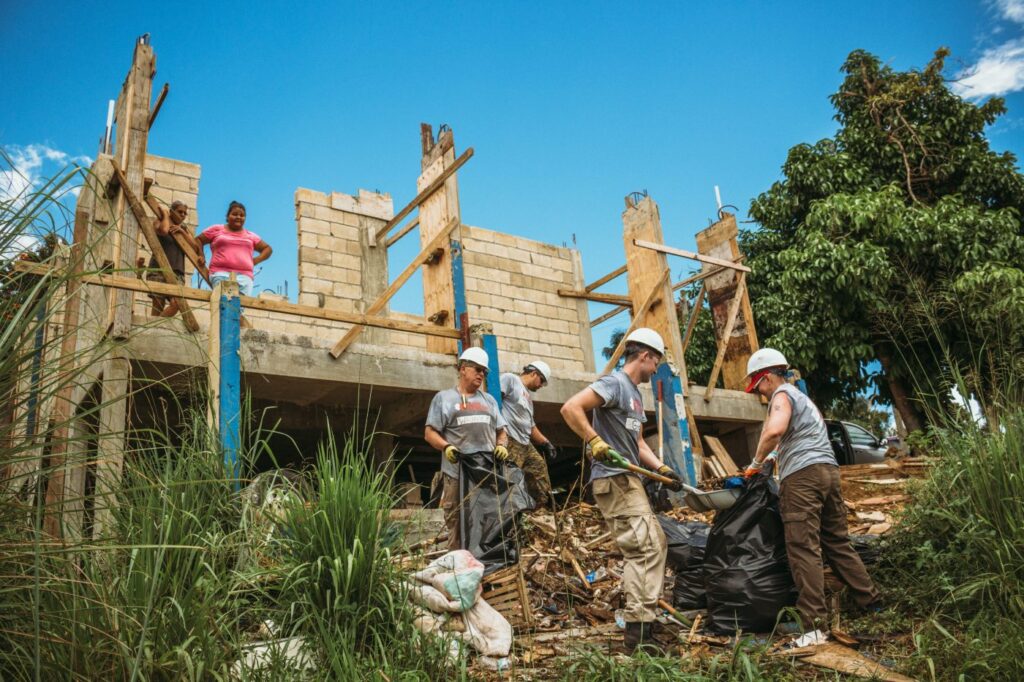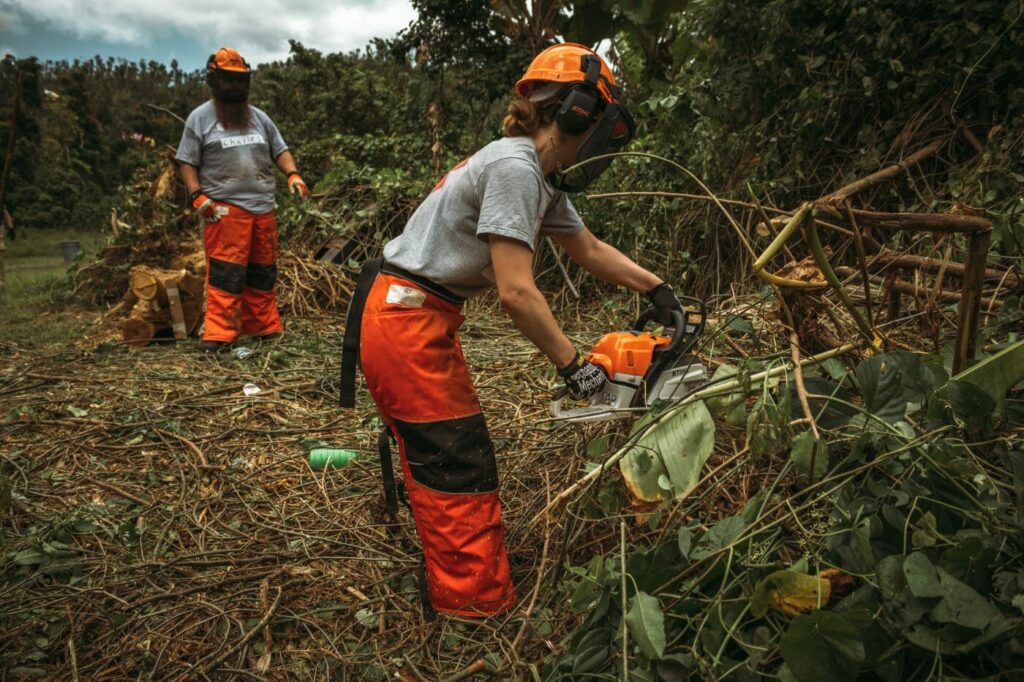Team Rubicon sent volunteers to assess damage and hospitals, deliver medical services and work on high-impact infrastructure projects, like clearing aqueducts and downed trees around power lines, after Category 4 Hurricane Maria devastated Puerto Rico last fall. TR operations in Puerto Rico, called Coqui Calling and Coqui Comeback, have been frequent and on-going, since September 24, 2017 (four days after Maria made landfall).
Clay Hunt Fellow Michael Lloyd was among the first wave of TR grey shirts to land in Puerto Rico, and he recalls that even 30 minutes out from landing on the island, he could see leaf debris in the ocean and that the whole island looked brown. “Most of the government agencies and NGOs were working in San Juan,” Lloyd said, “so TR went to the far side of the island. Resources were few and early on the targets of opportunity changed daily based on the island’s needs.”

Lloyd was named the Operations Sections Chief and said, we had to do “serious Indiana Jones shit,” which included hiking through the “thickest, gnarliest jungle to recon and map every inch of ducting to mark damage and blocks. We went through 22 tunnels, in thigh deep water with our chainsaws, through stagnant water and dead fish. And then we gave the map to the power company so they would know where to focus their efforts.” The aqueduct provided water to one half of the island or to 350,000 people, plus it provided hydroelectric power and agricultural water.
Within 10 days, TR had done the recon on the canal and worked to clear the aqueduct so water could flow freely from the reservoir. “It was a Herculean team effort,” Lloyd said. He cited Dr. Eduardo Gonzales as being instrumental in helping the team make connections all over the island. “The team called him The Unicorn. Anywhere we’d go on the island from a coffee shop to a government office to a nonprofit, he knew someone. He was our biggest advocate.”
TR sawyer teams worked to set up medical clinics near where they were sawing. Lloyd said one makeshift clinic was on the front porch of a house a few doors down from the canal. The chainsaw sounds brought locals to the teams, and the teams would then direct those who needed medical help to the clinic. “When we needed breaks from sawing and clearing debris, we could go to the clinic and help sign people in or do whatever they needed,” Lloyd said.

At first, TR teams “sniffed out opportunities,” Lloyd said. “If we heard FEMA was somewhere with paperwork for people to fill out, we’d set up a medical clinic nearby. But later in the operation, people sought us out.” TR clinics saw to the medical needs of more than 2,500 people, from September to December 2017.
Lloyd worked on the island from September to the end of February, stating that the op became more formalized as it went along. “Initially there was no Incident Command structure, but as time went on, we needed to go bigger” and as things progressed, we needed to “do different things. ” TR teams realized that people in the mountains had access to water but needed simple medical supplies and food, so they helped get those.
During these operations, TR also augmented an Emergency Room in San Sebastian and treated Federal Emergency Management Agency (FEMA) personnel in Lares. And Team Rubicon helped the Puerto Rican National Guard access a remote village outside Utuado.
Air Force veteran, Puerto-Rican native and TR volunteer Anthony Benitez worked as a strike team leader and interpreter on two waves of the operations and has expressed gratitude for all that Team Rubicon did on his beautiful island. “In my opinion, TR has been very important in Puerto Rico, not only from the waves and all that was done, but having volunteers on the ground getting trained up in case shit goes down again,” Benitez said.
Benitez said his team on wave two did damage assessment and his team on wave five performed debris removal, mucking and cutting. He called it “awesome” to join TR in going to the affected areas and to see “so many people help from the bottoms of their hearts that it brought me to tears almost every day of the operation.”
TR operations in Puerto Rico have been in conjunction with FEMA, Health and Human Services (HHS), Direct Relief, AmeriCares, Information Technology Disaster Resource Center (ITDRC) and St. Vincent De Paul Society. Operation Coqui Calling officially lasted until December 1, 2017, and involved more than 220 volunteers. Operation Coqui Comeback has taken place in 2018. Team Rubicon still has teams working in Puerto Rico, but the focus is now on rebuilding.



